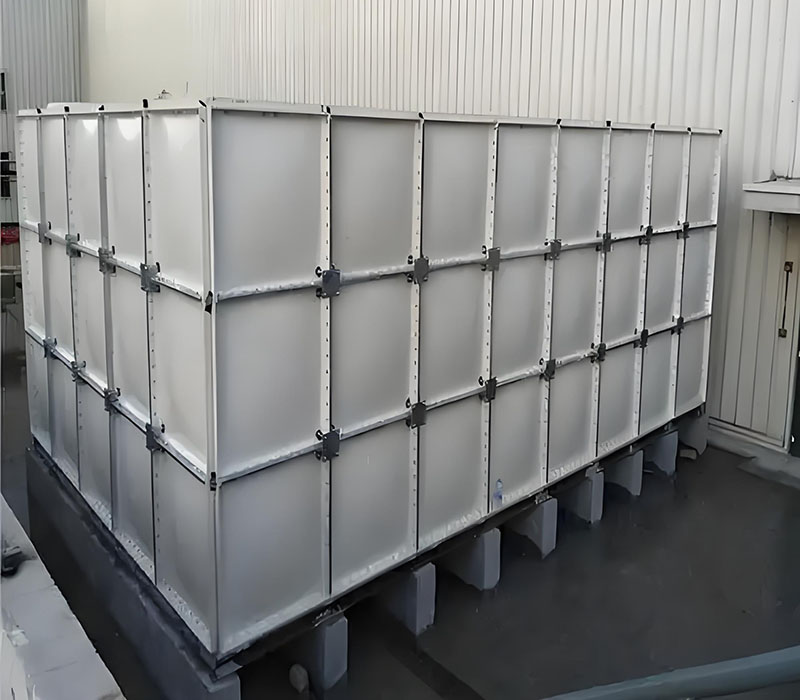When investing in a water storage solution, one of the most common and important questions customers ask is: "How long will it last?" If you're considering an FRP (Fiber Reinforced Plastic) water tank for your facility, it's a question worth exploring. In this blog post, we'll dive deep into the life expectancy of FRP water tanks, how they compare with other materials, and what factors can extend their service life.
FRP water tanks are made from a combination of high-strength fiberglass and a thermosetting resin. This composite material provides excellent mechanical strength and superior resistance to environmental degradation, corrosion, and chemical exposure. These qualities make FRP tanks a popular choice for storing potable water, industrial liquids, wastewater, and chemicals in diverse settings such as municipal systems, agriculture, manufacturing, and even residential developments.

On average, a well-manufactured and properly maintained FRP water tank has a life expectancy of 30 to 50 years, depending on usage conditions and environmental factors. Some tanks, especially those installed in mild environments with low exposure to harsh chemicals or UV radiation, have been known to last well beyond 50 years.
Factors that affect the lifespan include:
Material Quality: The type of resin and fiberglass used can greatly impact the tank's durability.
Manufacturing Process: Tanks manufactured using precision techniques and stringent quality controls typically last longer.
Installation Conditions: Proper installation on a flat, stable base ensures structural integrity over time.
Exposure to Elements: Constant exposure to UV rays or corrosive chemicals can reduce lifespan if tanks aren't protected.
Maintenance Routine: Regular inspections and simple maintenance practices can significantly extend service life.
Several intrinsic properties of FRP tanks contribute to their impressive longevity:
Corrosion Resistance: Unlike steel or concrete, FRP does not rust or corrode. This is especially valuable in coastal areas, chemical plants, and wastewater treatment facilities.
Lightweight but Strong: FRP tanks are significantly lighter than metal alternatives, reducing stress on the structure while still offering exceptional strength.
Chemical and UV Resistance: FRP materials are inherently resistant to most acids, alkalis, and solvents. UV-resistant topcoats can be applied to protect against sun damage.
Non-Porous Surface: The smooth, non-porous interior of an FRP tank prevents algae and bacterial growth, which helps maintain tank integrity and water quality.
Thermal Stability: FRP can withstand a wide range of temperatures, maintaining structural performance in both hot and cold climates.
| Material | Average Lifespan | Corrosion Resistance | Maintenance Needs |
|---|---|---|---|
| FRP | 30-50+ years | Excellent | Low |
| Steel | 15-25 years | Poor (needs coating) | High |
| Concrete | 20-40 years | Moderate | Moderate |
| Polyethylene | 10-20 years | Good | Low |
This comparison highlights FRP’s long-term cost-effectiveness. While the upfront cost might be slightly higher, the durability and low maintenance requirements of FRP tanks result in significant savings over time.
To get the most value out of your investment in fiberglass water tanks, follow these tips:
Choose a Reputable Manufacturer: Quality manufacturing ensures better performance and longer lifespan.
Ensure Proper Installation: Follow guidelines for base preparation and support structure.
Use Protective Coatings: Apply UV-resistant coatings if the tank is installed outdoors.
Schedule Regular Inspections: Early detection of minor issues can prevent major damage.
Clean Periodically: Keep the tank clean to avoid buildup and contamination that could stress the material.
As a leading FRP water tank manufacturer and supplier, we prioritize quality, reliability, and customer satisfaction. Here’s what sets us apart:
Advanced Manufacturing Techniques: We use cutting-edge technology and premium materials.
Customization Options: Our tanks are tailored to your size, volume, and design needs.
Expert Support: From selection to installation, our team offers full technical guidance.
After-Sales Service: We’re committed to helping you maintain your tank for decades to come.
The life expectancy of an FRP water tank—often exceeding 30 to 50 years—makes it a smart, long-term investment for any water storage need. With proper selection, installation, and maintenance, your GRP/FRP tank can deliver decades of reliable service, outperforming other materials in both durability and cost efficiency.
Interested in learning more or requesting a quote from trusted FRP water tank suppliers? Contact us today to find the right fiberglass water tank solution for your project.